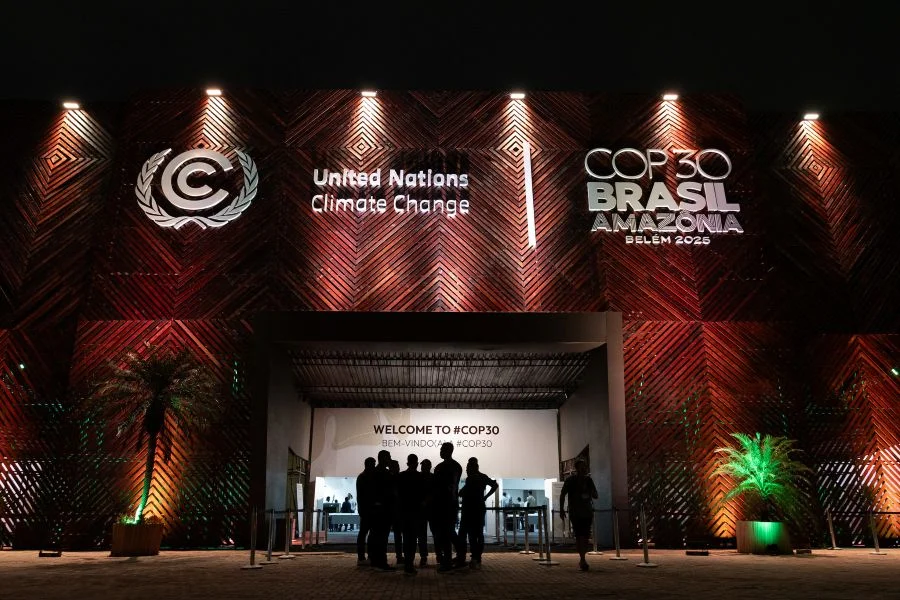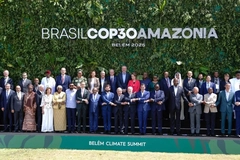COP30: IISD calls on governments to strengthen action against fossil fuel dependence
Key takeaways
- At COP30, the IISD urges governments to stop subsidizing and financing fossil fuel extraction to align with the Paris Agreement.
- The research institute calls for stronger NDCs to restore credibility to global climate targets.
- The IISD advocates for an equitable shift away from fossil fuels, with developed nations leading in financial and policy reforms.
The International Institute for Sustainable Development (IISD) is attending this year’s UN Climate Change Conference of the Parties (COP30) in Belém, Brazil, and urges governments and stakeholders to halt their funding for domestic and international fossil fuel extraction.
According to the UN Environment Programme, the six issues set to dominate the agenda at COP30 (Nov 10–21) are that the world is not on track to meet the previously set targets to mitigate climate change, protecting communities from the impact, mobilizing climate financing for developing countries, leveraging creative solutions, ensuring a fair transition away from fossil fuels, and recapturing the “hope” of the adoption of the 2016 Paris Agreement.
The IISD asserts COP 30 gives governments from around the world a chance to secure alignment and drive the transition away from fossil fuels in three ways:

Adopting follow-up commitments on phasing out fossil fuel subsidies and public finance for fossil fuels
Adopting a robust and credible response to the ambition gap in nationally determined contributions (NDC)
Strengthening the Just Transition Work Programme (JTWP) to make the shift away from fossil fuels fair, inclusive, and equitable.
The packaging industry remains dependent on fossil fuels for the production of polymers, despite efforts to boost the implementation of alternatives, according to industry experts. While the to-be-finalized UN Global Plastics Treaty aimed to tackle the issue, its conclusion was interpreted by many as an “abject failure.”
Fossil fuels dependence
The IISD says COP28 in Dubai, United Arab Emirates, was a key moment forward for the Paris Agreement as governments committed to transitioning away from fossil fuels in a “just, orderly, and equitable manner.”
 IISD urges governments to end fossil fuel subsidies and financing (Image credit: UN Climate Change — Kiara Worth).However, the think tank points out that two years later, world leaders continue to pursue policies that lead to the continued dependence on the finite resource.
IISD urges governments to end fossil fuel subsidies and financing (Image credit: UN Climate Change — Kiara Worth).However, the think tank points out that two years later, world leaders continue to pursue policies that lead to the continued dependence on the finite resource.
“Current production plans would see countries extracting over 120% more fossil fuels by 2030 than is consistent with limiting global warming to no more than 1.5 degrees Celsius above pre-industrial levels,” according to IISD.
“No progress was made on the ‘transitioning away’ agenda at COP 29, but in July 2025, the advisory opinion of the International Court of Justice confirmed that fossil fuel expansion, including by subsidizing fossil fuels, can be in breach of international law.”
Transition away
The IISD calls on governments to secure alignment with previous agreements and take action to transition away from fossil fuels by phasing out subsidies and public financing, strengthening NDCs, and ensuring a just transition for all involved.
Article 2.1(c) of the provision of the Paris Agreement calls for aligning financial flows with climate goals. IISD says countries could be asked to submit the inventories of their fossil fuel subsidies and develop action plans to gradually phase them out while protecting vulnerable communities. These plans should include clear timelines and measures.
“Countries should also be called upon to end all forms of public finance for fossil fuels, both domestic and international, with wealthier nations taking the lead.”
NDCs were due in February 2025, but “most parties have not yet delivered theirs.” The NDCs outlined in the October 2025 synthesis report would cut emissions by only 17% by 2035 compared to 2019 levels. Meanwhile, a 60% reduction is required for a pathway aligned with a 1.5 degrees Celsius target.
“Unless COP 30 delivers a robust response to this ambition gap, the Paris Agreement’s credibility will be at risk,” the IISD warns.
To make the shift away from fossil fuels fair, inclusive, and equitable, governments further need to strengthen the JTWP, first established at COP27.
“Since its launch, the JTWP has served as a valuable forum for exchanging experiences and has strengthened the shared understanding of how to implement just transitions in practice. Yet dialogue alone is no longer enough.”
The IISD says the JTWP must now evolve into a masochism that can coordinate and support the worldwide initiatives to shift away from fossil fuels, “particularly those in the Global South.”













